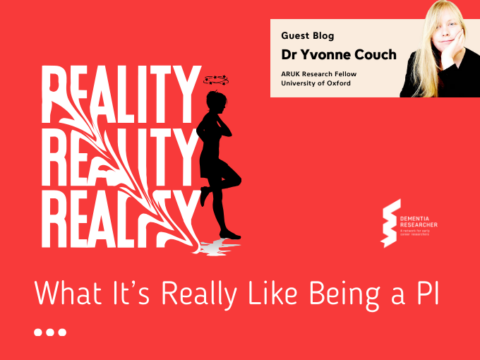I have worked in academia for the duration of my career. I have always had this romantic view about starting my own group and developing a ‘research identity’ at a university. I never saw another career path for me. Academia has a reputation of being a career full of free intellectual thought, idea development and stimulating conversations and collaborating. I am now, however, wondering if I have been pursuing the right thing and I am not the only one.
During my last postdoc, I knew of a PI who received funding to hire a new researcher. They advertised what should have been an incredibly attractive opportunity to any budding young researcher. It was a 4 year, fully funded postdoc position with the potential to apply for further support to extend the post. This would normally attract a multitude of applications. Instead… they received four. This is not a one-off situation either. I have spoken to a number of research group leaders in the last 12-18 months, and they are all saying the same, rather cliched but relevant phrase: “You just can’t get the staff anymore”.
Similarly, I have noticed a shift in thinking for PhD students with fewer and fewer expressing a desire to move on to a postdoc after they have submitted their thesis. On the surface, it looks like nothing has changed in terms of the value prospects of transitioning to a postdoc. There is a decent pay jump from a PhD stipend to a postdoc starting salary and you get to continue to pursue research that interests you. Additionally, working at a university gives you a level of day-to-day freedom that is hard to find in industry so it seems a great move right? But, unfortunately, more significant reasons like beneath these surface features that help you understand why promising young scientists are leaving academia.
Firstly, the temporary contract situation of postdoc life has always been a bug bare. You never hold down a permanent position and have to find new funding or a new job at least 3 or 4 times during your postdoc stint. This seemed like a manageable situation for postdocs when jobs were fairly readily available but the pandemic has drastically changed this. During the first 18 months of lockdowns and university closures most funders pulled all their schemes. The postdoc job market pretty much vanished and we saw large numbers of talented young scientists left stranded at the end of a contract with nowhere to go but out of academia. It really exposed the frailty of life as a postdoc and many just don’t think it’s worth the risk. Industrial research jobs offer you permanent contracts, often comparable or improved salaries and a host of benefits packages that a university simply doesn’t offer.
Secondly, while the salary for a postdoc looked attractive when I first moved into that role 7 years ago, it hasn’t changed much since. The economic situation across the globe, however, has. This is why the unions are now at odds with the government with continued strikes. Academic salaries are simply not being adjusted to reflect inflation and haven’t for some time. Companies who manage their own financial situations often appear more likely to adapt pay scales to a dynamic economy which in turn makes their employees feel more valued. Universities must catch up if they want to hold on to good people.
That last point is important too because it’s not just the young researchers that are going elsewhere. Do a quick job search and you will see several universities advertising a host of academic positions at lecturer grade and above. Companies are starting to notice that there are very talented people working at universities. People who have skills that they need and people who are being given increased workloads, pressure, and no significant remuneration for their extra efforts. Why stay somewhere for the same salary with increased workload when you can get poached for more money elsewhere? Yes there is the sense of legacy that you have built with your research but legacy doesn’t pay the bills and, in this economy, more and more people are going to switch to the more pragmatic approach of seeking financial security.
It feels like we are at a bit of a crossroads and we need to acknowledge that there is a problem brewing here. We need academic institutes to prosper. They train the next generation of scientists who go on to discover future medicines and therapies. It is getting harder and harder for universities to hold on to good people and that is a real issue. You cannot produce promising scientists without strong mentors. This problem is not going to go away. The economic situation across the globe is not magically going to improve overnight. Many predict it will get worse. It is time to acknowledge the problem and address it. Academia is losing the romanticised image that made it so attractive to people like me and that is a real shame. It needs to get its image of valuing and developing intelligent and promising people back. If we ignore the issue, it will only get worse and we need strong academic institutes to keep our innovation machine running.

Dr Sam Moxon
Author
Dr Sam Moxon is a Research Fellow at the University of Birmingham. His expertise falls on the interface between biology and engineering. His PhD focussed on regenerative medicine and he now works on trying to develop 3D bioprinting techniques with human stem cells, so that we better understand and treat degenerative diseases. Outside of the lab he hikes through the Lake District and is an expert on all things Disney.

 Print This Post
Print This Post




